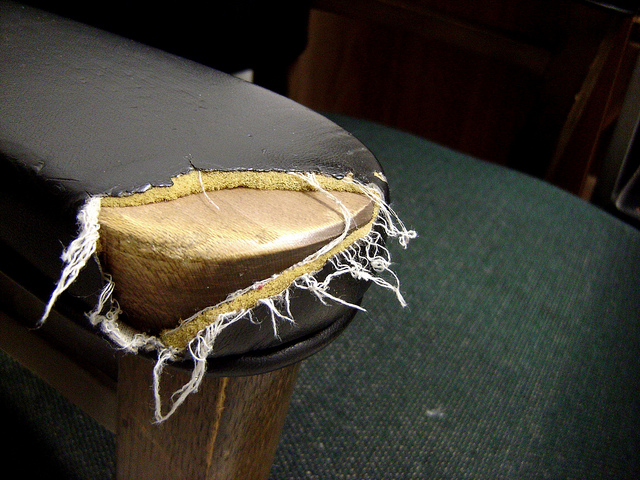
Photo by EdYourdon
It's always unfortunate when a couple or a family has to dissolve. For one reason or another, people sometimes decide that they will be better off on their own and decide to part ways. In the luckier scenarios, those involved in a break-up are able to sort out their common issues in a respectful and timely manner before letting go, but it isn't always that simple.
One of the largest common concerns that a long-term relationship brings is common living. A couple usually likes to move in together and share a home for this purpose. A double income and shared expenses help with purchasing a home immensely. Mortgages are much easier (and often cheaper) to come by for couples when both applicants are employed and can support each other throughout the lifetime of the mortgage.
Problems arrive when the couple is not living together anymore. One of the two may decide to move out due to partnership problems and may refuse to contribute to the mortgage payments. This puts the entire mortgage at risk if the remaining person has troubles affording the monthly payments.
As long as the title on the house or condo is shared by both former partners, exposing their ownership to risk is unwise for either of them. If you leave your companion "in it" by himself or herself, he or she may decide to give up the payments if he or she is short on cash. At this point, the lender may come and foreclose on your commonly owned property, depriving you of what is likely the largest investment of your life.

Broken Chair Arm by Monik Markus
Of course, you may decide to sell your common property prematurely and split the proceeds. While this may be a reasonable decision, don't forget that every house and condo needs its due share of care. Even if you have to go through a lengthy divorce, make sure that you help each other with the maintenance and upkeep of the property. If the legal process takes too long, you may be in the market with a neglected property that is of much less value than you hoped for.
Don't let your differences have a huge negative impact in the value of your common properties. Be smart about your money. You will both need it to move on, and there is no need to deprive yourself or your former partner. Even if you think selfishly, you're still better off selling a good, well-maintained house than a broken-down property under the threat (and time constraint) of foreclosure. At stake are your credit rating, your financial security, and your well-being going forward.
Some common solutions for divorcing couples are the following:
- One of the two purchases the other's half of the property and thus acquires full ownership.
- The couple is able to manage a timely home sale and split the proceeds evenly.
- The couple vacates the property and rents it out while continuing with their shared mortgage payments (aided by the rental income). This would be the most challenging option, but may make the most financial sense in some cases.
The next time you get into a row with your former partner, think about the value and the past struggles that are at stake and let that vision motivate you to resolve your issues rationally. If in doubt about whether this is possible, make sure your ex-partner reads this article before you engage in further communication.



